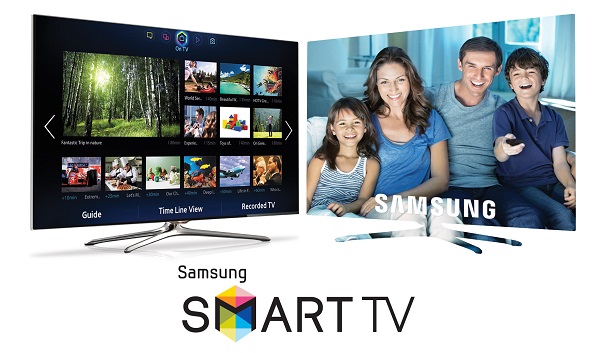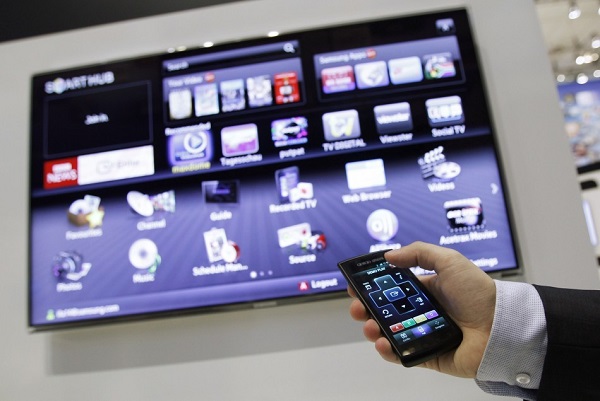As gadgets begin to offer more and more features, a new smart TV from Samsung highlights our serious fears about new technology.
In theory, smart televisions sound like a phenomenally good idea. Instead of having to buy specific boxes such as the Amazon Fire TV or a games console to to access media apps, your TV would already offer them and so all you’d have to do is use your TV remote to connect to Netflix or Amazon Prime Video to catch up on that show you love. Similarly, you’d also be able to watch shows on YouTube, where media creators are increasingly releasing web series. Or you could listen to music; or play games, or interact with your friends on social media.
The possibilities are endless, which is why smart TVs are speedily increasing in popularity. But as a warning included with Samsung’s smart, Internet connected TV shows, the future of our televisions is also a scary one. That suggestion comes from the following policy, regarding the Voice Recognition feature in Samsung’s new TVs:
“You can control your SmartTV, and use many of its features, with voice commands. If you enable Voice Recognition, you can interact with your Smart TV using your voice. To provide you the Voice Recognition feature, some voice commands may be transmitted (along with information about your device, including device identifiers) to a third-party service that converts speech to text or to the extent necessary to provide the Voice Recognition features to you. In addition, Samsung may collect and your device may capture voice commands and associated texts so that we can provide you with Voice Recognition features and evaluate and improve the features. Please be aware that if your spoken words include personal or other sensitive information, that information will be among the data captured and transmitted to a third party through your use of Voice Recognition.”
Yes, the company has confirmed that the things you say to your TV to control it will be sent to a third-party service, where the data is then analysed and sent back, to tell your TV what to do. And while it’s true that most of the time the third-party service is just another tech device (and there’s no human interaction), that’s still incredibly scary.
Samsung has also explained that users can disable Voice Recognition data collection (where Samsung collects various bits of data and text versions of the thing you say in order to improve Voice Recognition’s performance) but doing this will prevent you from using Voice Recognition at all. They also note that you can disconnect your TV from the Internet and that a microphone icon shows up on the screen when the Voice Recognition is activated so even if you think you’re being eavesdropped on, you would know about it. But who will want to disconnect their TV from the Internet every time they want to have a person conversation? And who wants to constantly be on the lookout for that little microphone symbol? No one, that’s who.
And other concerns still remain. Namely, even if Samsung themselves isn’t collecting our voices for whatever usage, what if somebody else is? What if the smart TV gets hacked and some nefarious human being uses it to spy on us? Less bizarre things have happened, so we wouldn’t write it off.
If smart TVs (and indeed, all Internet-connected smart gadgets) are going to take off, privacy concerns like this will need to be addressed in the future. We’ll keep you posted should Samsung make any more statements.
Source: TechCrunch
Be social! Follow Walyou on Facebook and Twitter, and read more related stories, Could Samsung Be On of the Main Suppliers for the Next iPhone?, Samsung get ready to unveil their newest Galaxy












